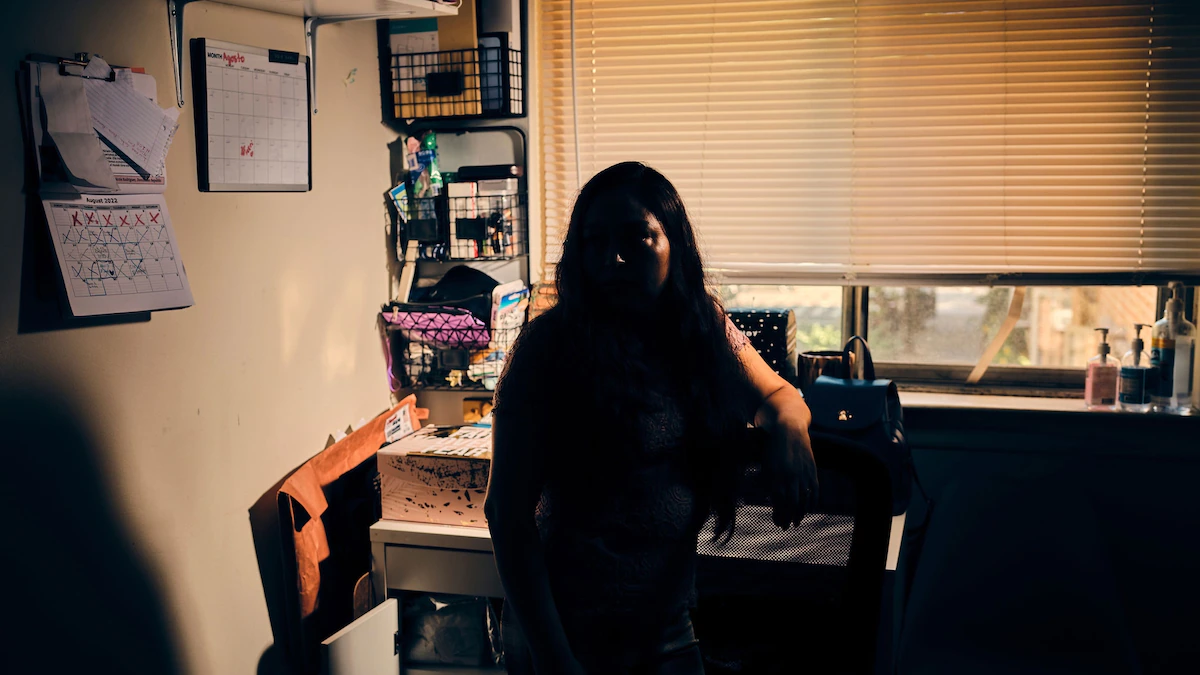Published September 1, 2022
12 min read
Imelda fled sexual violence at the hands of drug cartels in rural Puebla, about two hours outside of Mexico City, and arrived in New York City in 2013. She had no health insurance, barely spoke English, and as an undocumented immigrant, she avoided situations that required revealing her identity.
So in March 2020, even as the city became the national epicenter of the COVID-19 pandemic, Imelda, who asked that her surname not be used due to risk of deportation, resisted going to the hospital for her escalating fever and fatigue. “When the symptoms began, I wanted to go,” Imelda says, but her fears outweighed her desire for treatment.
Since arriving in the U.S. Imelda had visited a hospital only once, for the birth of her second daughter. But in addition to worries about revealing her immigration status, she was afraid of incurring medical bills that exceeded what she earned cleaning houses. Delaying or forgoing care for COVID-19 was a decision that Imelda and many other undocumented immigrants made due to the unique healthcare challenges they face in America—challenges of inequality that are having nationwide consequences.
The U.S. is home to more immigrants than any other country in the world: Per the latest estimates, 46.7 million foreign-born individuals reside in America, making up nearly 14 percent of the national population. About 11 million of these people are undocumented, but they’ve filled critical jobs that citizens often don’t want, including working in agricultural fields, the service industry, and in healthcare facilities, while paying billions in taxes each year.
According to a December 2020 report from the bipartisan political organization FWD.us, 69 percent of undocumented immigrant workers in the U.S. held jobs that were deemed essential during the pandemic—and they were 50 percent more likely to get COVID-19 than U.S.-born workers. For many, that’s meant surviving a public health emergency while working low-paying jobs (often on the frontlines) that don’t offer benefits; it can also mean being ineligible for free or subsidized public health insurance. To compound these problems, countless workers are unaware of their coverage options or fear accessing them.
A 2017 study found that about half of the undocumented immigrants living in America lacked necessary health insurance. That often leaves a large proportion of this community delaying care, which could result in health complications or an advanced illness and a greater reliance on emergency rooms. “When they’re unable to pay those costs, the money goes into uncompensated care costs, raising the debt in the healthcare system,” says Drishti Pillai, director of immigrant health policy at the Kaiser Family Foundation, a nonprofit organization focusing on national health issues.
For those like Imelda living in the shadows, the COVID-19 pandemic once again revealed the deep-seated inequities to accessing medical care in America. Even today, people in this underserved community continue to suffer, often with little help.
Too little care, too late
In addition to medical costs and insurance access, a sustained lack of trust has dissuaded the country’s growing immigrant population from engaging with the healthcare system. This mistrust arises in part from the discrimination immigrants have experience based on how they look, where they’re from, or their inability to speak English. “It’s really hard,” Imelda says.
Anti-immigrant rhetoric has also kept the undocumented community from accessing timely care. At the Elmhurst Hospital Center in New York City, which caters largely to New York City’s low-income immigrant population, “we’ve watched our volume dip at times when there are national discussions about immigration and whether it was good or bad for the country,” says Stuart Kessler, one of the hospital’s emergency medicine physicians.
In Houston, researchers noted that Latina immigrants delayed their first prenatal care visit and reduced the number of visits overall during their pregnancies after July 2015, when rhetoric around deportation intensified in the lead-up to the 2016 presidential election.
That fear of accessing healthcare in a climate of growing anti-immigrant sentiment continued through 2020 when the COVID-19 pandemic hit and further exacerbated already existing barriers between the healthcare system and this underserved population.
“We just didn’t realize our systems of care were this fractured, and that so many people could fall through the cracks because the cracks were just so huge,” says Jairo Gúzman, president of Mexican Coalition, an advocacy group for child and family rights based in New York.
That was true for Imelda in March 2020. With no one to consult and no place to isolate, she endured her COVID-19-like symptoms for a week in the three-bedroom apartment she shared with seven others—including her husband and two kids. As she found herself struggling to breathe a hospital visit became an urgent necessity.
She went to a hospital and, at an overwhelmed emergency room, nervously waited for an online interpreter so she could talk with the medical staff and find out if she had COVID-19. “Five minutes is all I got,” she says, which wasn’t enough for her to explain all her symptoms while also answering the doctor’s questions and noting his instructions about next steps.
The medical team didn’t give her a COVID-19 test because a chest x-ray showed no irregularities. Instead a nurse gave her Tylenol to reduce her fever and, within a few hours, Imelda was sent home with the assurance that she’d receive check-in phone calls and could return if her symptoms worsened.
But no calls came, and Imelda’s hea

